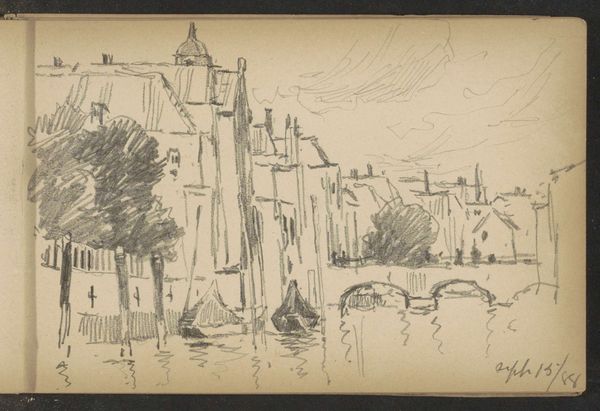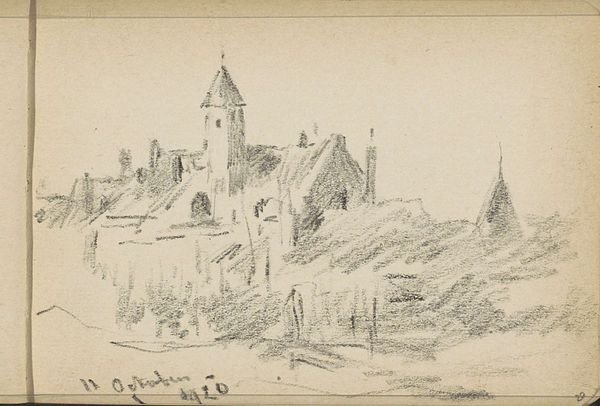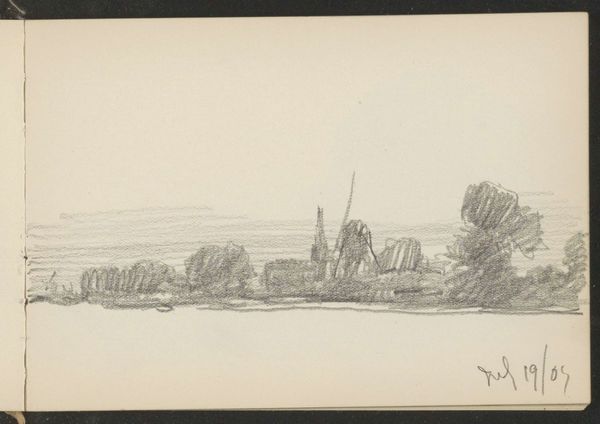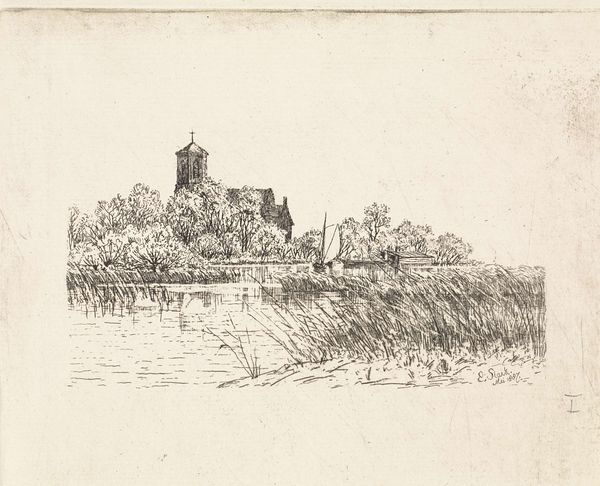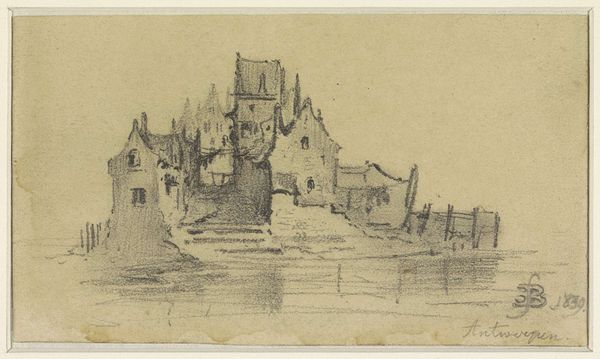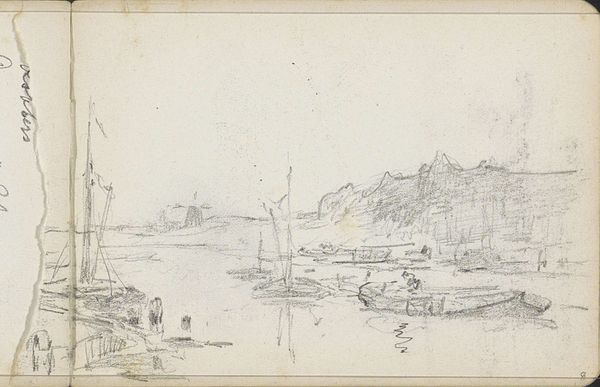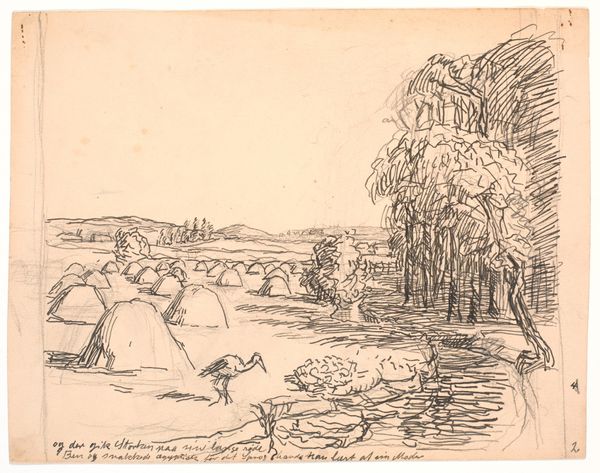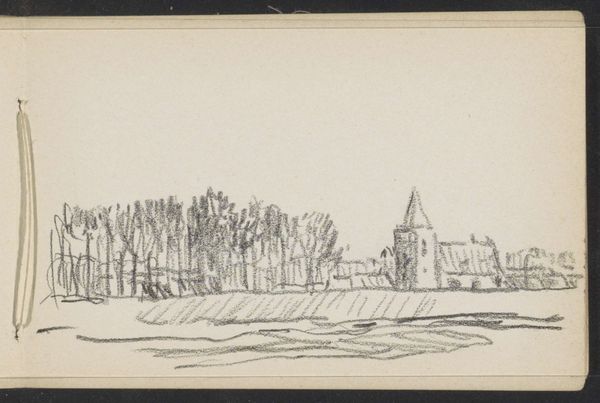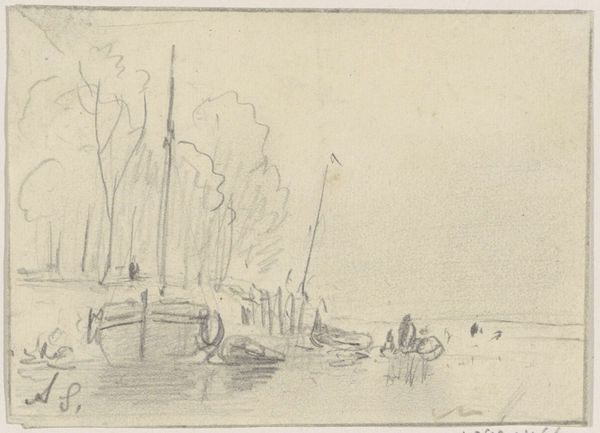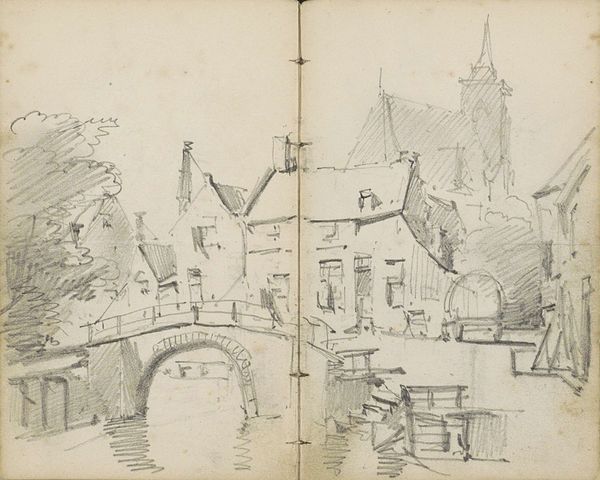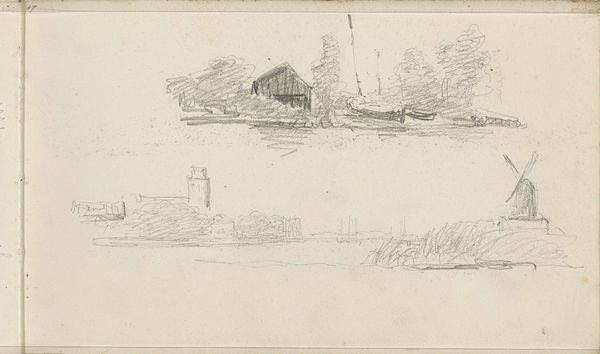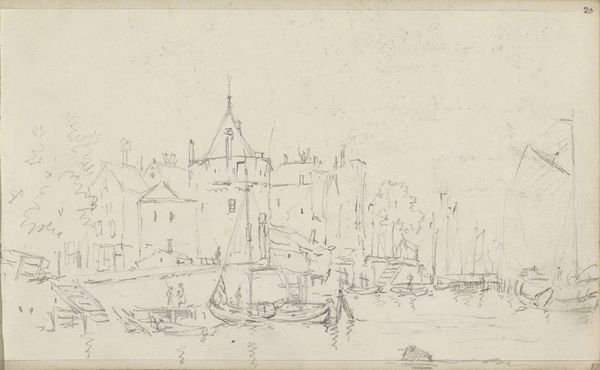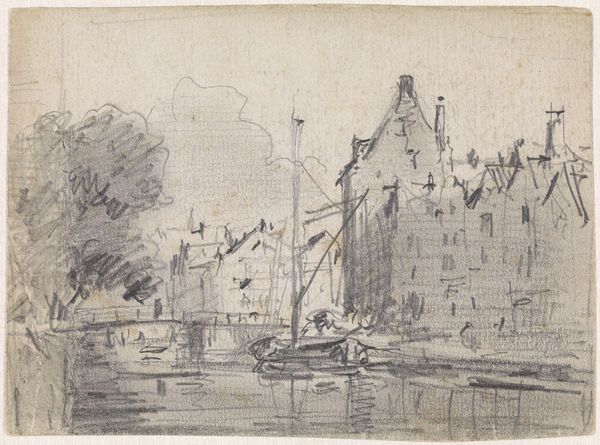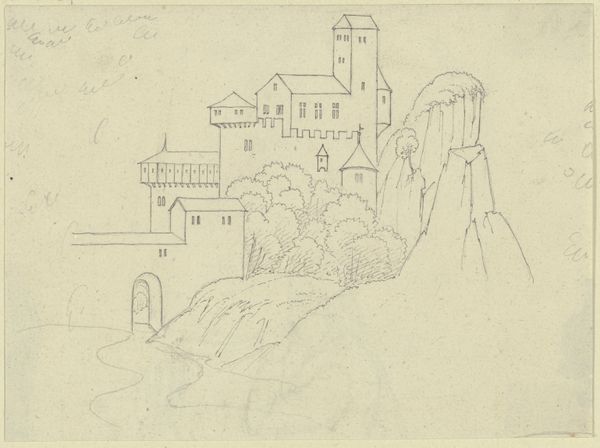
drawing, paper, pencil
#
drawing
#
landscape
#
paper
#
personal sketchbook
#
sketchwork
#
pencil
#
sketchbook drawing
#
sketchbook art
#
initial sketch
Dimensions: height 114 mm, width 159 mm
Copyright: Rijks Museum: Open Domain
Editor: This is "Gezicht op Haarlem met de Amsterdamse Poort," a pencil drawing on paper created by Willem Cornelis Rip between 1907 and 1909. It seems to capture a landscape scene, almost dreamlike in its haziness, as if the artist was quickly jotting down what they observed. What's your take on it? Curator: Well, viewing this piece through a historical lens, I see it as more than just a quick sketch. It's a document, revealing the evolving relationship between the city and its citizens at the turn of the 20th century. Notice how the Amsterdamse Poort, once a defensive structure, is now presented almost as a picturesque element in a landscape. What does that shift tell us about the changing purpose of such landmarks? Editor: I hadn’t thought of it that way. It's easy to see the gate as simply an aesthetic feature, but it definitely held political and social weight in its time. Curator: Precisely! Consider also how the drawing's medium—a seemingly casual pencil sketch—contributes to a sense of accessibility. Is the artist trying to democratize the image of this landmark, bringing it to a wider public through more affordable and reproducible means, like sketchbooks and prints? Editor: So, in its own way, even a simple drawing like this could be seen as having a public function, shaping perceptions of history and place? Curator: Absolutely! Even preliminary sketches contribute to a wider understanding and cultural engagement, inviting a connection to shared memories. Ultimately, this landscape represents social shifts and the popularization of place. What will you take away from this image? Editor: That even initial sketches have potential social and historical stories embedded in them. They provide fascinating snapshots into our ever-evolving public culture!
Comments
No comments
Be the first to comment and join the conversation on the ultimate creative platform.
